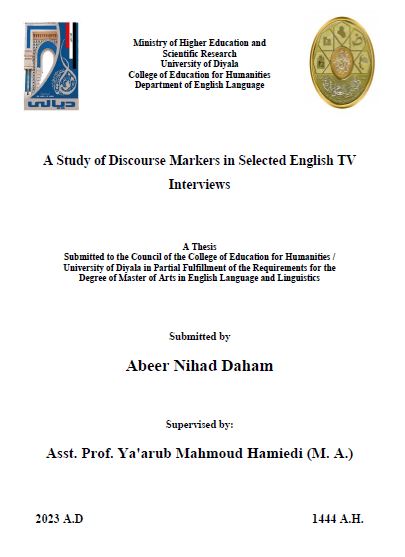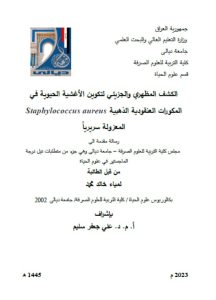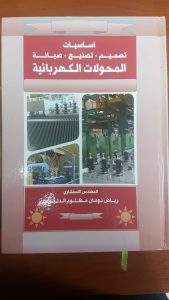
Abstract
Face-to-face interviews are regarded as a particular genre of spoken speech and contain several linguistic devices that merit further study. Due to the active and direct contact between participants in these interviews, context sensitivity exists. Thus, certain expressions should be used for a variety of purposes, including shifting the subject, introducing a new topic, eliciting personal commentary from participants, showing politeness, etc. These expressions are known as discourse markers (henceforth ; DMs), and they transmit pragmatic functions (expressing the speaker’s attitude and other communicative goals) as well as textual functions (expressing coherence and cohesion).
This study aims to know the functions of DMs and the extent of using them in TV Interviews. The study is based on hypotheses that state, firstly that the use of DMs can affect the run of conversation directly or indirectly. Secondly, DMs are frequently used by participants in different types of conversation. Finally, it is that context and personality contribute to the choice of DMs.
To achieve the aims of study and verify its hypotheses, two types of procedures have been followed: theoretical and practical. The theoretical procedure consists of presenting a theoretical framework concerning definitions of DMs, basic concepts, and their types, in addition to some related previous studies. On the other hand, the practical procedure consists of selecting ten English Interviews from different YouTube channels. The selected TV Interviews have been analyzed in light of Biber et al.’s (1999) model.
The results of the analysis have shown that DMs are crucial to talks; therefore, they can significantly affect how the conversation flows by explaining, defending, and interpreting the intended meaning. Without these DMs, the presenters cannot link their concepts, assemble their ideas, or finish their discourse. DMs are cues from the speakers to the listeners that signify the conversation’s conclusion. Also, if the speaker is feeling furious, shy, thrilled, or humiliated, DMs assist them in expressing these emotions. DMs may also aid the speaker in masking his true feelings. The speaker could not be telling the truth when using DMs.
Finally, recommendations and suggestions for further studies are mentioned based on the study findings.



